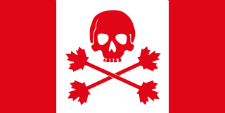The CRTC has denied FairPlay Canada's application for a broad pirate site blocking scheme. Following a heated public debate, the telecoms regulator ruled that it lacks jurisdiction under the Telecommunications Act to implement the plan.
 Earlier this year, FairPlay Canada proposed to institute a national pirate site blocking scheme.
Earlier this year, FairPlay Canada proposed to institute a national pirate site blocking scheme.
The coalition of copyright holders and major players in the telco industry, including Bell and Rogers, submitted its plan to the Canadian telecoms regulator CRTC, which subsequently asked the public for input.
This consultation triggered a wave of responses. Many ISPs and rightsholder groups were in favor, but there was also a big wave of opposition from academics, activists, and members of the public.
After a careful review, the CRTC today decided to deny FairPlay Canada’s pirate site blocking application. In its decision, the regulator explains that it lacks the jurisdiction to implement the proposed measures.
“The Commission determines that it does not have the jurisdiction under the Telecommunications Act to implement the FairPlay Coalition’s proposed website blocking regime to address copyright piracy and, consequently, it will not consider the merits of implementing the regime,” CRTC writes.
The FairPlay coalition argued that piracy brings serious harm to the Canadian entertainment industry. While the CRTC doesn’t deny this, it stresses that the Telecommunications Act is not meant to implement such copyright remedies.
“The Commission acknowledges that there is evidence that copyright piracy results in harm to the Canadian broadcasting system and to the economy in general,” CRTC writes.
“However, there are other avenues to examine the means of minimizing or addressing the impact of copyright piracy, including the ongoing parliamentary review of the Copyright Act and the expert panel review of the Telecommunications Act and the Broadcasting Act.”
This means that the controversial site blocking proposal is off the table for now. It’s certainly possible, however, that a revised version will be brought up again in the future.
Digital rights group OpenMedia, a fierce opponent of the plan, is happy with the outcome. Executive Director Laura Tribe describes it as a big win for the open Internet and a true demonstration of democracy in action.
“Today the CRTC protected the open Internet, in an important victory,” Tribe notes, adding that “all eyes will now turn to the Copyright Act Review, to see the final act of this play.”
At the time of writing the FairPlay Canada coalition itself has yet to comment on the decision through their official channels.